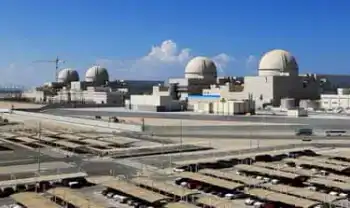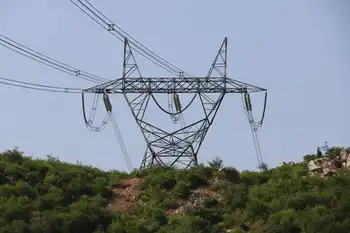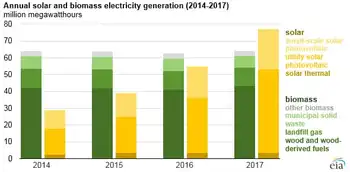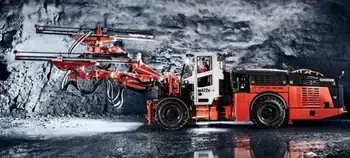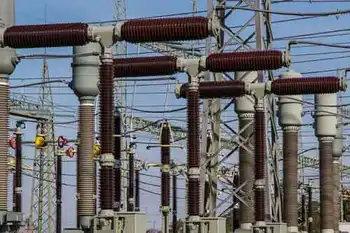Medvedev looking for new nuclear rules
By Reuters
NFPA 70e Training - Arc Flash
Our customized live online or in‑person group training can be delivered to your staff at your location.

- Live Online
- 6 hours Instructor-led
- Group Training Available
Medvedev, standing alongside Ukrainian President Viktor Yanukovich at a ceremony marking the 25th anniversary of the world's worst nuclear accident, said the disaster had taught states that they must tell the whole truth to their people.
His words amounted to an acknowledgement of wrong-doing by Moscow since the Soviet Union, of which Ukraine was then a part, delayed announcement of the full scale of the accident at the Chernobyl plant for some days.
"The duty of a state is to tell the truth to its people. It must be acknowledged that the Soviet state did not always behave correctly," he said.
"In order for such tragedies never to be repeated we must all be honest, we must provide absolutely exact information about what is going on," he said.
His words took on added poignancy amid continued efforts by Japan to control the crisis at its Fukushima nuclear plant, which was damaged by an earthquake and tsunami.
The Kremlin leader, echoing similar words by UN Secretary general Ban Ki-moon, said what was happening in Japan and what happened at Chernobyl made it imperative to draw up new rules covering the peaceful use of nuclear energy and safety.
"Today, I sent proposals to world leaders... aimed at guaranteeing the necessary development of nuclear energy in the world while preventing at the same time catastrophic global consequences of accidents," he said.
On April 26 1986, the No. 4 reactor at the Chernobyl plant exploded and caught fire after a safety test experiment went badly wrong. The blast sent radiation billowing across Europe.
A total of 31 people died immediately but many more died of radiation-related sicknesses such as cancer, many of them in what is today Belarus.
Tens of thousands were evacuated, never to return, from Prypyat, the town closest to the site, which then had a population of 50,000.
The world community, spurred by the nuclear crisis at Japan's Fukushima plant, pledged 550 million euros US $780 million to help build a new containment shell over the stricken reactor at the Chernobyl site to replace a makeshift one that has begun to leak radiation.
"Chernobyl was a challenge of planetary dimensions. The answer to this challenge can be provided only by the world community," Ukraine's Yanukovich said.
"For a long time, Ukraine was alone with this calamity, but happily we are not alone now," he said in a statement.
In Chernobyl, he thanked Medvedev for Russia's donation of 45 million euros US $65.38 million. In Belarus, President Alexander Lukashenko also toured areas affected by the disaster.
The anniversary triggered anti-nuclear protests in several European countries. About 120,000 people took part in anti-nuclear rallies across Germany, the largest Easter Monday protests in many years, ahead of the anniversary.
There were 80 rallies across Germany, the largest outside the Grohnde nuclear reactor, one of 17 plants in Germany, where 20,000 took part. About 15,000 also took part in rallies outside reactors at Biblis and Grafenrheinfeld.
In Romania, scores of protesters gathered near government headquarters in Bucharest. Protesters, some wearing green vests and protective chemical suits and gas masks, want authorities to cancel plans to build new nuclear reactors in the European Union state on the river Danube banks, in Cernavoda.
Protesters planned more rallies in Vienna having drawn around 700 people including the chancellor the previous day. Social Democrat Chancellor Werner Faymann called for Europe to withdraw from the technology completely.
Chernobyl is now the benchmark for nuclear accidents. Though Chernobyl town was relatively untouched, Prypyat is now a ghost town at the center of a largely uninhabited exclusion zone with a radius of 30 km 19 miles.
On April 12 Japan raised the severity rating at Fukishima to seven, the same level as that of Chernobyl.
"This is a day of mourning for us. We are in mourning for the people who 25 years ago fought to protect us," said Gennady Pikul, 50, referring to firefighters and other 'liquidators' who at risk to their lives fought to control the blazing reactor. "We will do everything we can so that this is never repeated."
The 550 million euros raised at the donors' conference will be added to cash already contributed for construction of a new 110-meter high encasement over the reactor and a storage facility for spent fuel.





